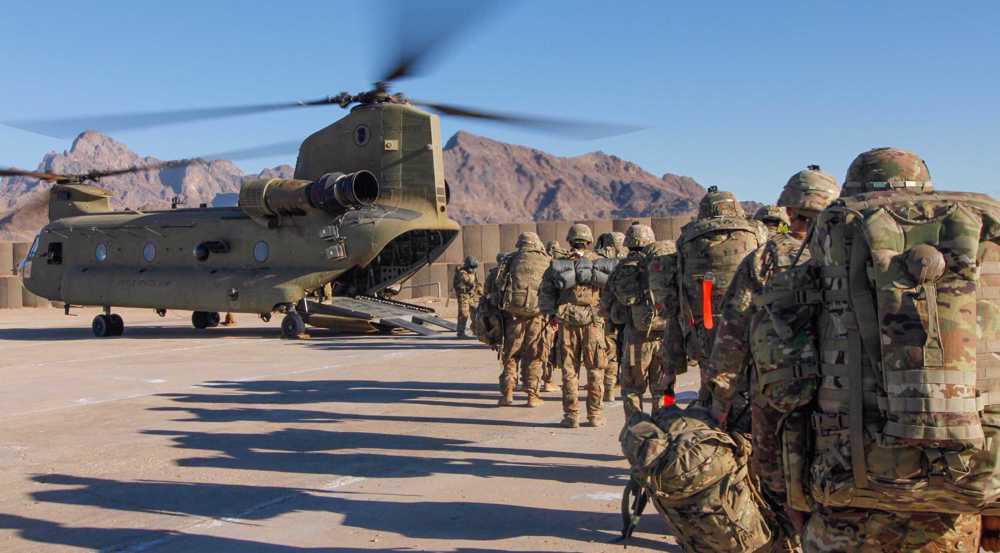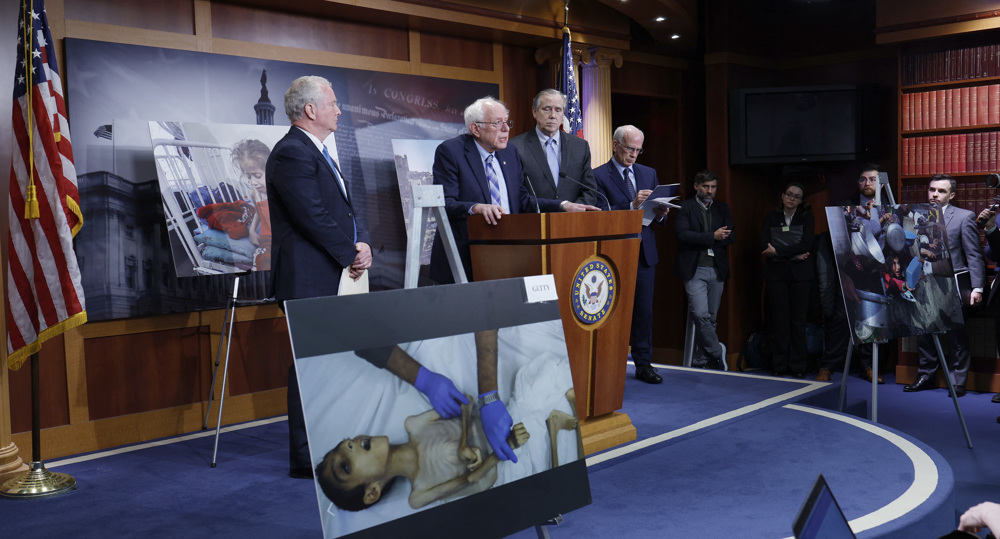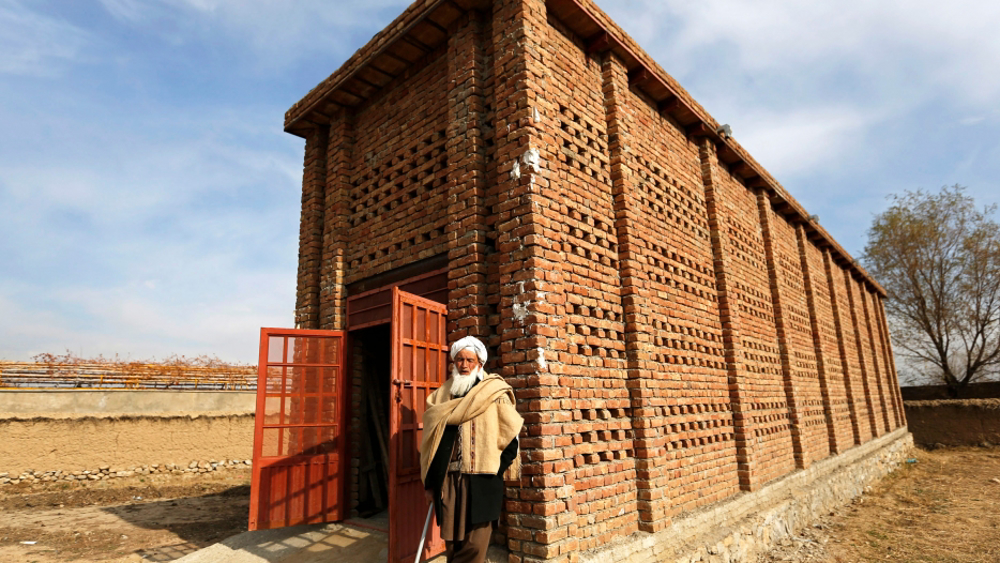US trapped between Taliban and own contractors on Afghanistan withdrawal
The agreement between Washington and the Taliban on the withdrawal of US troops and personnel from Afghanistan by May 1 has failed to take into account nearly a billion dollars in contracts related to work in the war-ravaged country.
According to reports, there are currently some 18,000 defense contractors in the country, of which 6,350 are Americans who are involved in projects that would last beyond the withdrawal deadline.
It has called into question wisdom and uprightness of US officials who negotiated the deal that sought complete drawdown of US and coalition forces currently stationed in the country.
With just four weeks until the May 1 deadline, the fate of these projects remains uncertain, which means the Pentagon would have to shell out hundreds of millions in settlements or face litigations.
Dov Zakheim, the former Chief Financial Officer for the US Defense Department, was quoted by CNN as saying that the new administration is “going to have a barrel full of lawsuits” unless it is ready to “settle for whatever amount the contractors can ask for.”
US President Joe Biden, who had earlier vowed to review the controversial deal reached by his predecessor last year with the Taliban, has appeared reluctant to pull back his troops by May 1.
On Thursday, he suggested the US would not adhere to the May 1 withdrawal deadline, but hastened to add that he “cannot picture” the US troops in the war-torn country next year.
“We are not staying for a long time,” he told media persons at his first press conference. “We will leave. The question is when we leave.”
US-Taliban Doha agreement
The Doha agreement, signed on February 29 last year in the Qatari capital, beside the drawdown of US and coalition troops, also calls for the withdrawal of “non-diplomatic civilian personnel, private security contractors, trainers, advisers, and supporting services personnel.”
This is where intention behind the deal comes under scrutiny, as multiple contracts were signed by the Pentagon after the deal with completion time beyond May 1, 2021 – the withdrawal deadline.
“The general trend regarding the number of DoD contractors in Afghanistan continues to scale downward. It remains too early to speculate on whether it will continue to do so on par with that of potential troop drawdowns as no decisions have been made regarding future force levels in Afghanistan,” Pentagon spokesman Maj. Rob Lodewick was quoted as saying by CNN.
The Taliban have threatened to scale up attacks against the US-led foreign troops in Afghanistan if the United States and coalition forces stay beyond the deadline. In a statement earlier this week, the group said it will be “compelled” to continue “armed struggle against foreign forces to liberate its country.”
Last month, it had warned the US and NATO forces against seeking a “continuation of war,” in response to reports that NATO is waiting for the US to take a decision on the full withdrawal.
“The continuation of occupation and war is neither in your interest nor in the interest of your and our people,” the Taliban said in a statement, before the NATO ministerial meeting. “Anyone seeking extension of wars and occupation will be held liable for it just like the previous two decades.”
Pertinently, since the invasion of Afghanistan by the US and allied forces in 2001, foreign contractors have borne the worst brunt of war, possibly more than service members.
According to the Washington Post’s Afghanistan Papers, a total of 3,814 US contractors have been killed in Afghanistan over the past two decades, as opposed to about 2,300 troops.
At its peak in 2011 and 2012, a total of 99,800 US service members were stationed in the country apart from 117,227 contractors, as per data from the Congressional Research Service.
Contracts with post-May 1 completion date
According to reports, even with the withdrawal deadline inching closer, the US Defense Department has issued more contracts in Afghanistan, essentially seeking to maintain its foothold there.
Some of these contracts may be canceled under what is called “Termination for Convenience of the Government,” where the contracts are ended “in the government's interest.” The contractor can then agree to a settlement with the government, or the contractor can sue if they do not agree upon a settlement, a report in CNN states.
Interestingly, on March 12, less than two months before the deadline, the US Department of Defense signed a contract with Textron Systems Corp. for $9.7 million for “force-protection efforts” at Bagram Air Base near the Afghan capital. The contract covers unmanned aerial systems, intelligence, and reconnaissance. The corporation’s work is slated to complete by March 2022, long after the May 1 deadline.
.
A day earlier, the department inked another contract with Salient Federal Services for $24.9 million for information technology infrastructure in the country, with the same completion date.
Two fixed-firm-price security contracts amounting to $68.2 million with Aegis Defense Services, a private security service, are slated to complete in late 2023 and early 2026.
According to the CNN report, there are at least 18 contracts accounting for $931 million issued since the Doha agreement of February 29, 2020. All are related to Afghanistan with completion dates after the withdrawal deadline.
VIDEO | Press TV's news headlines
Iran FM: Response to Israeli aggression 'inevitable'
VIDEO | Iran eases the rules for exporting hand-woven carpets
VIDEO | Intl. Day for the Elimination of Violence against Women: A stark reminder of Gaza women
Australia denies ex-Israeli minister Shaked visa
VIDEO | 85% of Yemeni displaced people face daily hunger crisis
US House passes bill targeting charities and pro-Palestine groups
VIDEO | Supporting Gaza genocide















 This makes it easy to access the Press TV website
This makes it easy to access the Press TV website